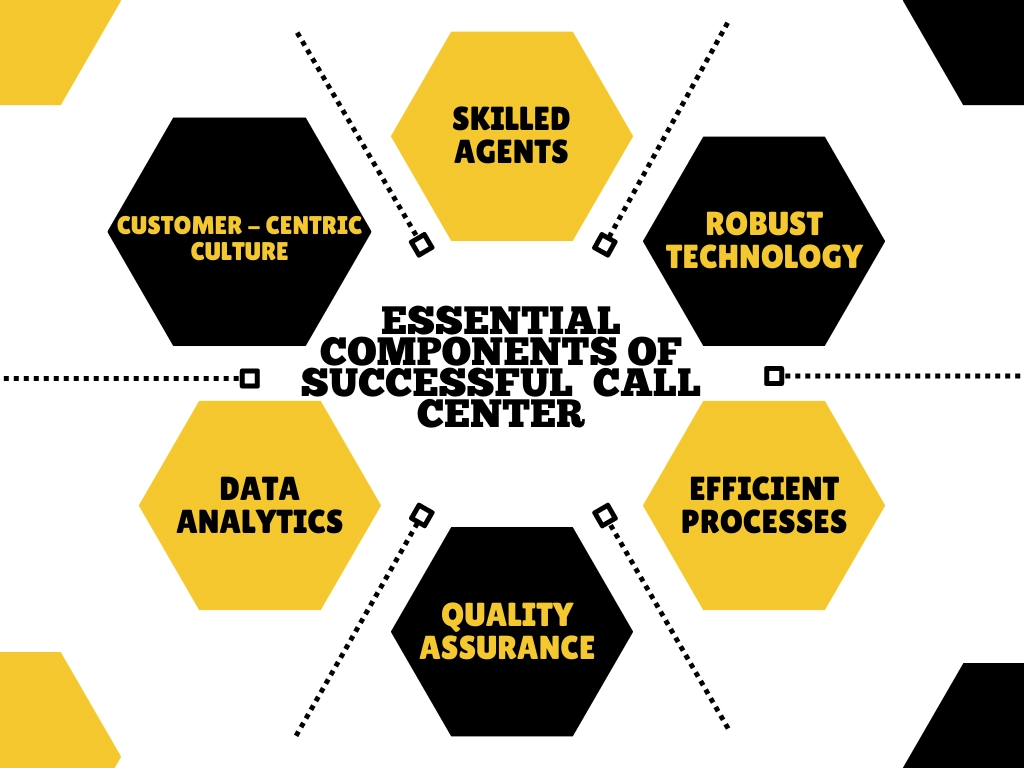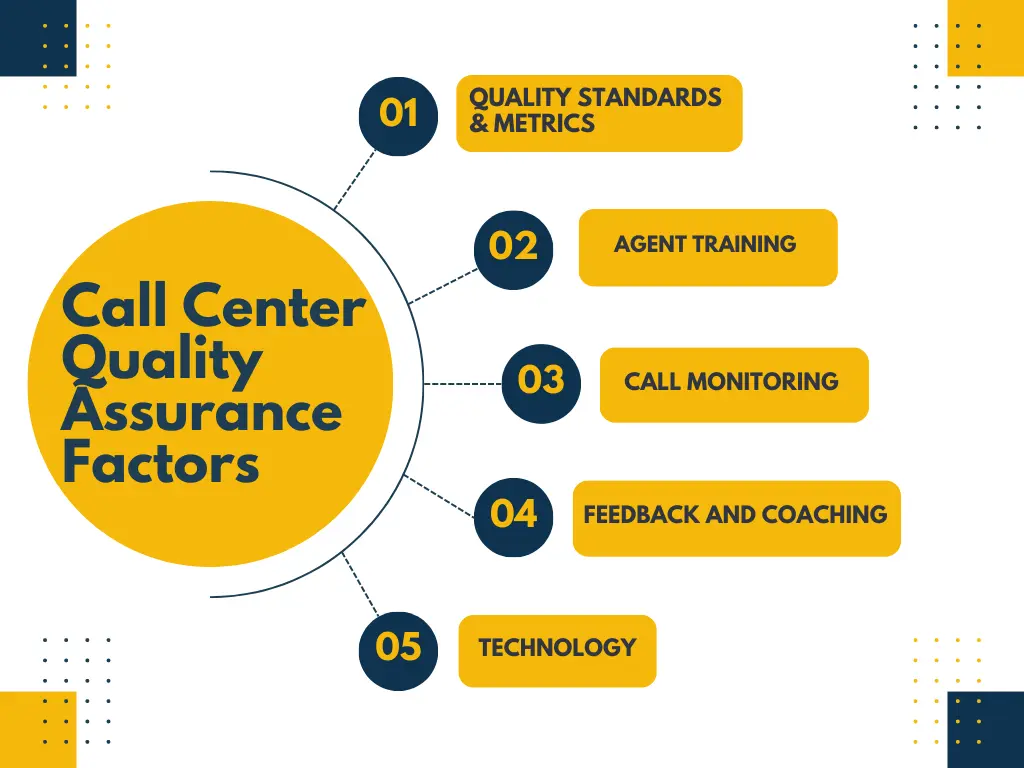
Content
In 2026, as customer expectations continue to soar and technology evolves at a breakneck pace, call center management faces unique challenges. From balancing the integration of AI with human-centric interactions to maintaining efficiency while managing a remote or hybrid workforce, the sector demands innovative strategies. High employee turnover, increasing customer demands for personalized service, and the pressure to reduce operational costs add layers of complexity to management.
Effective call center management is no longer optional; it’s a critical component of organizational success. Businesses must adopt forward-thinking practices to improve productivity, enhance customer experiences, and retain top talent.
In this blog, we’ll explore the 9 call center management best practices for 2026, providing actionable insights to navigate this dynamic landscape with confidence.

What is Call Center Management?
Call center management is the process of overseeing and directing the day-to-day operations of a call center. This involves managing a team of customer service representatives who handle inbound and outbound phone calls, emails, live chats, and other forms of communication with customers. Effective call center management requires a comprehensive understanding of customer service, communication technologies, and personnel management.
The primary responsibility of call center management is to ensure that customers receive the best possible service at all times. It involves the process of creating and implementing policies and procedures to control factors related to customer interactions to boost business growth and get higher ROI figures.
Did You Know?
According to a study by Microsoft, 96% of consumers say that customer service is an important factor in their choice of loyalty to a brand.
Why Is Effective Call Center Management Essential for Business Success?
Effective call center management is essential for several reasons:
- Improved Customer Satisfaction
Efficient management ensures prompt issue resolution, personalized interactions, and a consistent customer experience, fostering satisfaction and loyalty to enhance brand reputation and long-term business growth. - Increased Agent Productivity
Streamlined workflows, adequate training, and supportive supervision empower agents to handle queries efficiently, boosting their morale and productivity while minimizing errors and improving customer interactions. - Cost Optimization
Effective resource allocation and monitoring reduce operational costs by minimizing inefficiencies, enhancing workforce utilization, and optimizing call center technology for better ROI. - Enhanced First-Call Resolution (FCR)
Proper management emphasizes addressing customer concerns during the initial contact, reducing repeat calls, saving time, and improving customer trust and satisfaction. - Consistent Performance Monitoring
Tracking key performance metrics ensures accountability, identifies areas for improvement, and maintains service standards, fostering a culture of continuous improvement. - Adaptability to Demand Fluctuations
Proactive management ensures the workforce adapts to changing call volumes, preventing customer frustration due to long wait times and maintaining service efficiency. - Strengthened Employee Retention
Providing support, recognition, and professional growth opportunities motivates staff, reducing turnover and retaining experienced agents crucial for consistent service delivery. - Data-Driven Decision-Making
Leveraging call center analytics informs strategic decisions, highlights trends, and enhances service strategies, ensuring alignment with customer expectations and organizational goals.
Essential Components of Successful Call Center Management
If your business relies on customer service, then call center management is critical for your business growth. Every successful call center management requires a combination of various elements from skilled agents to fostering a customer-centric culture. In this section, we will explore each of these crucial components in more detail.

Skilled Agents
The success of a call center depends largely on the skills and abilities of its professionals. Be it a call center agent, supervisor, or manager. Call center agents are the first contact for end users. They must possess excellent communication skills, along with a slew of capabilities like being able to work under pressure and being knowledgeable about the products and services the business is selling or supporting. Leading call centers will focus on recruiting and training skilled agents and coaching them to improve their performance through curated training programs.
Robust Technology
Modern call centers rely on robust technology to handle high volumes of customer inquiries and provide a seamless customer experience. If you are aiming for enhanced customer experience, then you must invest in the latest communication technologies, such as cloud-based contact center software, speech recognition, and Artificial Intelligence (AI). These technologies can help agents manage calls more efficiently, improve customer satisfaction, and reduce overall operational costs.
Efficient Processes
Efficient processes are paramount to the success of a call center. Successful call centers develop and implement standardized processes for handling customer inquiries, which include call routing, escalation procedures, and issue resolution. They continuously refine and monitor workflows and processes to ensure that they are optimized for efficiency and effectiveness.
Quality Assurance
Quality assurance is essential to ensure that call center agents are delivering the highest level of service possible. Efficient call center management implements quality assurance programs that include call monitoring, performance evaluations, and feedback mechanisms. These programs are designed to identify areas for improvement and provide call center agents with the support they need to excel.
Fact:
A study by Salesforce found that 80% of customers believe that the experience a company provides is just as important as its products and services.
Data Analytics
Data analytics is another critical component of successful call center management. Call center managers use the accumulated data to track key performance metrics or KPIs, such as call volume, average handle time, customer satisfaction, and more. These metrics can help call center managers identify areas for improvement, optimize processes, and measure the effectiveness of their strategies and tactics to increase call center productivity and efficiency.
Customer-centric Culture
Finally, successful call center management will definitely have a customer-centric culture that prioritizes the needs and preferences of customers. All leading call centers have a culture of customer service excellence that values open communication, empathy, and a willingness to go above and beyond to meet customer needs. It’s not a one-way trip but rather an evolving mindset that is reinforced through continuous training and development programs, employee recognition programs, and many more targeted programs.
9 Proven Call Center Management Best Practices
Managing a call center can be overwhelming, but certainly not impossible. So, here are our top 9 proven call center best practices to help you exceed customer expectations in 2026:

1. Hire The Right People & Train Them Right
The success of a call center often depends on the quality of its employees. Call center managers should carefully select agents who possess the necessary skills and qualities to excel in customer service. Hiring the right talent starts with a thorough recruitment process that includes screening for the right skills, knowledge, and attitudes. Training should be ongoing and tailored to each employee's strengths and weaknesses, with a focus on customer service, technology, and soft skills. Investing in employee development and career growth can boost employee engagement, leading to better job performance and retention.
Did You Know?
A study by Forbes found that 86% of customers are willing to pay more for a better customer experience.
2. Assign Specific Roles & Delegate Tasks Accordingly
For effective call center management, it’s imperative that each employee have a specific role and responsibilities. This helps in eliminating guesswork, streamlining workflows, and ensuring efficient resource usage. Delegating tasks according to the role helps each employee know exactly what they need to work on, and how much effort they need to put on to achieve a specific goal. For this, call center managers and supervisors must properly assess each agent’s strengths and weaknesses to optimize their performance.
3. Establish a Clear & Transparent Incentive Structure To Boost Agent Performance
Incentives can be a powerful motivator for call center employees. A transparent and clearly defined incentive structure can encourage your employees to perform at their best. The incentive structure should be aligned with the overall goals of your goals and should be based on objective criteria, such as call quality, customer satisfaction, and productivity. Properly disbursing incentives on time will boost employee morale and trust in the company management.
4. Track Most Effective KPIs
Key performance indicators or KPIs are essential metrics for measuring call center performance. Call center managers should track the most effective KPIs, such as call volume, call resolution time, average handle time, and customer satisfaction, which suits your business model. Regular tracking and analysis of these KPIs can help your managers to identify areas for improvement and take corrective action where necessary.

5. Leverage Quality Assurance
Quality assurance (QA) is a critical component of call center management. QA involves monitoring calls to ensure that customer service representatives are adhering to established policies and procedures. If you aim for the best customer experience, you must conduct regular QA audits to identify areas where additional training is needed, and to ensure consistent call quality from agents.

6. Streamline Workflows & Operations
Call centers can benefit from streamlining workflows and operations to improve efficiency and customer satisfaction. To achieve this, managers need to analyze their existing processes, identify areas for improvement, implement technology solutions, standardize processes, monitor performance, and continuously improve. By doing so, call centers can optimize their operations, reduce inefficiencies and bottlenecks, and provide better service to their customers. The result is a more productive and cost-effective call center that is better equipped to meet the needs of its customers.
7. Invest In the Right Technology
Call center technology can be a significant enabler for success. Your business should invest in the right call center software, such as customer relationship management (CRM) systems, call routing software, workforce management software, omnichannel strategy over multi-channel strategy, and more. The right technology at the right point can help to streamline operations, reduce costs, and improve call center performance.

8. Create A Productive & Positive Work Environment
A positive work environment can be a significant factor in call center success. Your business must strive to create a positive and productive work environment that fosters employee engagement and reduces turnover. This can be achieved by providing opportunities for employee growth and development, keeping communications open for employee development, promoting work-life balance, and recognizing employee achievements are some of the most common ways to implant a productive culture to boost customer satisfaction in the long term.
Did you Know?
A study by ICMI found that the most common call center challenge is agent attrition, with an average annual agent turnover rate of 29%.
9. Incorporate Constructive Feedbacks From Customers To Boost Performance
Listening to customer feedback can help call center managers identify improvement areas. You must conduct regular surveys and customer feedback sessions to get valuable insights into customer satisfaction levels and areas where call center performance can be improved. Incorporating constructive feedback can help to boost call center performance and improve overall customer satisfaction.
Conclusion
Call center management involves overseeing customer service operations and ensuring seamless communication between businesses and customers. It requires managing personnel, technology, workflow, and performance metrics while handling complexities like high call volumes and varied customer needs while maintaining consistent service quality.
Outsourcing call center services to third-party providers like Invensis offers businesses a solution to these challenges. A third-party provider can scale operations, manage infrastructure, and leverage specialized software, reducing the burden on internal teams. Invensis, with its robust call center outsourcing services, offers businesses advanced software solutions to streamline operations, improve customer interactions, and ensure effective performance monitoring.
We provide services such as inbound and outbound support, technical assistance, lead generation, and customer retention strategies. By leveraging cutting-edge software and industry expertise, we ensure seamless integration and improved service delivery, enabling businesses to focus on core activities while enhancing customer satisfaction and loyalty.
Discover Our Full Range of Services
Click HereExplore the Industries We Serve
Click HereBlog Category
Related Articles

Optimize your store in 2026 with the best WooCommerce order management plugins. Automate order tracking, inventory, and customer service for success.
January 21, 2026
|

Find the leading accounting firms in Singapore trusted by businesses for audit, tax, and advisory services.
November 6, 2025
|

Explore the leading accounting firms in South Africa providing expert audit, tax, cloud accounting, and payroll services. Learn about their key features and unique offerings.
February 2, 2026
|
Services We Provide
Industries We Serve







.webp)